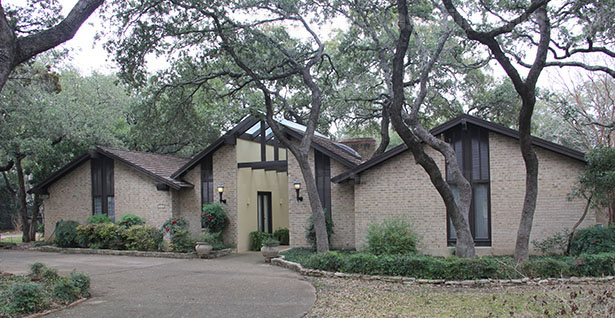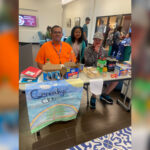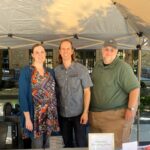
By Ashleigh Gow
For Aimee Skillen, moving a portion of her father’s Holocaust Library collection to Texas A&M-San Antonio was an easy choice.
Skillin’s decision came after her father, Harry Mazal, died in 2011.
Mazal studied and researched history for years and started collecting books on the Holocaust in the late 1960s.
History Professor Edward Westermann said Mazal spent decades collecting and building his library to educate others on the Holocaust, including those who denied it happened.
“He wanted to build up his library, not only for research but for a website dedicated to keeping the Holocaust alive and to do away with the denial of it,” he said.
The Mazal library will provide students with in-depth resources on the Holocaust as one of the leading library collections in the United States.
Librarians began processing 8,500 books, now held at Gillette Campus on San Antonio’s South Side for cataloging, in January.
“As a professor who teaches a research class it is very gratifying to know students are going to have access to one of the premiere collections in the United States,” Westermann said.
Mazal began his library collection in 1993 in the early days of the Internet. Skillin said Mazal went online to research and found online users denying the Holocaust. To combat their denials, Mazal began organizing books and other Holocaust relics.
Originally from Germany, Mazal lost family members during the Holocaust. He decided to expand his collections and research, and to create a library and website to show others the Holocaust happened.
He created the Mazal library in his San Antonio home at 16430 Hidden View St. and opened it to the public. In the ‘90s, he added a parking lot and built a 2,000 square-foot-room to house the collection.
He allowed researchers browse through his materials by appointment.
Mazal’s collection includes over 12,000 manuscripts, archives and books on the Holocaust. Skillin said he spent about $4 million building it.
Mazal wanted to keep the library in San Antonio, Westermann said. He asked university President Maria Hernandez Ferrier, Provost Brent Snow and Librarian Stefanie Wittenbach, to visit the library. After their visit, the university made the decision to provide a home for the materials.
“We weren’t able to purchase it, so it became a donation, a gift to us from Aimee,” Westermann said.
Wittenbach said the remaining 4,000 volumes of archives and manuscripts went to Colorado University. Ph.D. candidates studying in the university’s Jewish study center turned it into another ideal situation.
“It really ended up being a nice marriage of the institutions to be able to preserve the collection and give its best chance to be used by a broad base of students,” Wittenbach said.
Wittenbach said once she catalogs by fall, students and researchers can check out the material to study in a private reading collection room in the new library at the Main Campus Building.
A&M-San Antonio and Colorado University will collaborate during the summer to catalog all book materials, title by title, making them accessible around the world for students and researchers. The process will take a few years for both universities to accomplish.
Wittenbach said the university plans to apply for money for the project so the collection lives on.
“These collections will no longer exists if we don’t save them and share them,” Wittenbach said. “The Mazal collection can’t be recreated.”






